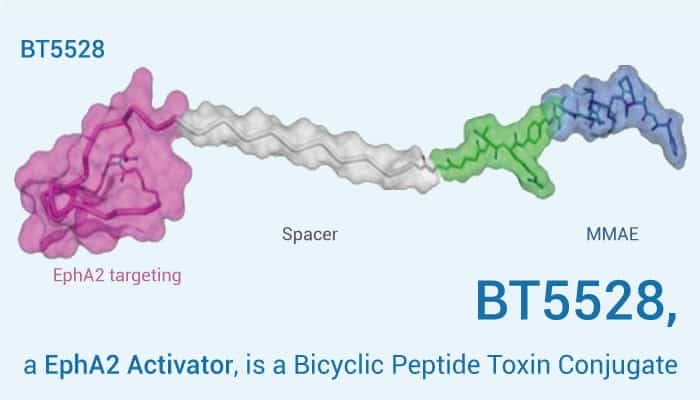The tyrosine kinase EphA2 belongs to the Eph receptor family and is produced in large quantities in tumor tissues. Specifically, its content is relatively low in most normal adult tissues. The liver ligand receptor (Eph) is the most important receptor tyrosine kinase (RTK). Besides, Eph receptor signal transduction contributes to a variety of biological events, mainly leading to cell rejection or adhesion. Moreover, the EphA2 receptor is a 130 kDa transmembrane glycoprotein. Furthermore, EphA2 forms an activated oligomer in the presence of the Ephrin-A ligand. The ligand and kinase activity-dependent forms of EphA2 signaling involve receptor tyrosine phosphorylation.
Meanwhile, EphA2 kinase-dependent signal transduction is related to various functional results. EphA2 kinase-dependent signal transduction inhibits AKT-mTORC1 and RAS-ERK carcinogenic pathways and inhibits cell adhesion and migration. Nonetheless, it enhances cancer cell proliferation and promotes tumor angiogenesis. Importantly, EphA2 signal transduction plays a role in inflammation, atherosclerosis, and infection. EphA2 regulates cytoskeletal tissue through Rho/RAC GTPases. Particularly, EphA2 receptor tyrosine kinase can activate many different signal pathways. These signaling pathways play a role in processes such as tissue homeostasis and cancer. Here, we will introduce an EphA2 activator, BT5528.
BT5528 is a Bicyclic Peptide Toxin Conjugate, an EphA2 Activator.

At first, BT5528 is a bicyclic peptide toxin conjugate, an EphA2 activator. In particular, BT5528 includes a bicyclic peptide and Auristatin E. BT5528 is derivated from BCY6099. Interestingly, BT5528 shows potent anti-tumor activity without bleeding or coagulation toxicity in rat models.
Secondly, BT5528 shows a high affinity on EphA2 with a Kb value of 19.1 nM. BT5528 activates EphA2 in EphA2-expressing cells with an EC50 value of 41.9 nM. Additionally, BT5528 inhibits cancer cells growth with IC50s of 21.9 nM (HT-1080), 5.2 nM (PC-3), 21.6 nM (NCI-H1975), respectively.
Thirdly, BT5528 with 1-3 mg/kg by i.v. once a week for 2-5 weeks inhibits tumor growth in vivo in a mice xenograft model. BT5528 exhibits great ability to penetrate solid tumors in Non-small-cell lung carcinoma (NSCLC) Patient-derived xenograft (PDX) xenograft model in mice.
Finally, BT5528 is a bicyclic peptide toxin conjugate, an EphA2 activator.
References:
Bennett G, et al. Cancer Research. 2018. 78(13 Supplement), 5854-5854.
Bennett G, et al. Mol Cancer Ther. 2020 Jul;19(7):1385-1394.